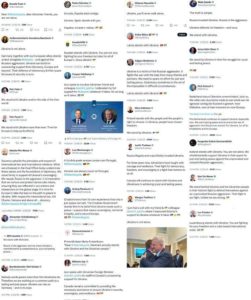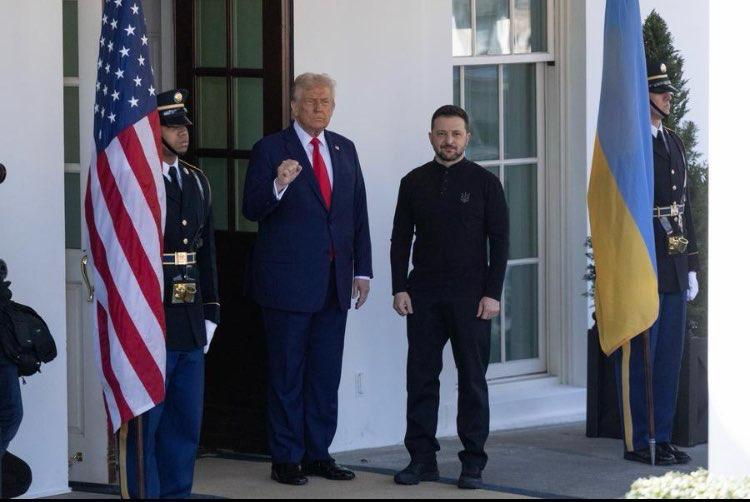The incident in the Oval Office of the White House involving the Presidents of Ukraine, Volodymyr Zelensky, and of the United States, Donald Trump, will undoubtedly be included in diplomatic and political training manuals. Its details and circumstances will be studied for a long time by experts in diplomacy, history, political science, and psychology.
It is clear that many are applauding joyfully, especially those whom a close associate from Donald Trump’s first presidential term described as being so happy that they ‘drink vodka straight from the bottle.'»
However, for mature and responsible societies, there is little reason for celebration. Even a superficial review of media sources, including those sympathetic to Russia, is enough to see the deep conviction and justified fears of a return – or rather, a reckless acceleration – toward an era where international issues are resolved by force, and international agreements become nothing more than fuel for the fireplace.
However, let’s return to the events in the White House.
As the legitimate President of Ukraine, Volodymyr Zelensky took a principled stance on establishing peace and refused to accept «capitulatory peace agreements» or «fair deals.» Such agreements would not bring the long-awaited peace to Ukraine but would instead give Putin’s Russia a free hand.
Moscow has extensive but questionable experience in all forms of destabilization – ranging from basic disinformation and intimidation to skillful manipulation of international norms, traditional values, and even outright renewed aggression. Examples of this can be found without delving deep into history.
For this reason, Zelensky advocates for creating the proper conditions to ensure a just and lasting peace based on respect for the interests of the Ukrainian people. This is why he, his team, and Ukrainian society are attentive to details, nuances, and circumstances in achieving peace – but not at the cost of behind-the-scenes deals.
There should be no expectation that Zelensky will compromise on security guarantees for Ukraine. The country clearly understands that a mere ceasefire, without obligations from Russia, is unacceptable and will only lead to a continuation of the war.
Despite the intense public pressure from Donald Trump and his vice president, the President of Ukraine did not allow himself to accept the aggressive tone and impositions of inferiority that were pushed upon him.
He fully understood that blindly submitting to the will of the White House was not about peace or a «fair deal». It was about indulging Russia’s interests.
Despite repeated claims about Trump’s exceptional negotiation skills, Zelensky demonstrated that Russia’s ‘gentle’ diplomacy, agreements, and verbal ‘strokes’ of reassurance have not worked – at least not since 2014.»
The Ukrainian leader did not allow the war crimes committed by Russia and its desire to destroy Ukraine to be downplayed. He didn’t let himself be drawn into a debate about hatred toward the master of the Kremlin.
After Zelensky’s unsuccessful meeting with Trump, European leaders voiced their support for him and Ukraine. They emphasized the need to continue assisting Ukraine and resisting Russian aggression. Moreover, the opinion that «the free world needs a new leader» is becoming increasingly popular.

Even in the United States, politicians recognize Zelensky as a strong leader. American Senator Adam Schiff remarked, «A hero and a coward are meeting in the Oval Office today. And when the meeting is over, the hero will return home to Ukraine.»
The overexcited mockers who have been ‘drinking vodka straight from the bottle’ since the Riyadh meeting should keep in mind that Zelensky’s visit to Washington, despite extreme tensions, did not close the door to further contact and negotiations with the U.S.
The Ukrainian leader has proven that he does not succumb to pressure, even in the most difficult negotiations, and that he will continue to fight for Ukraine.
Patriot

